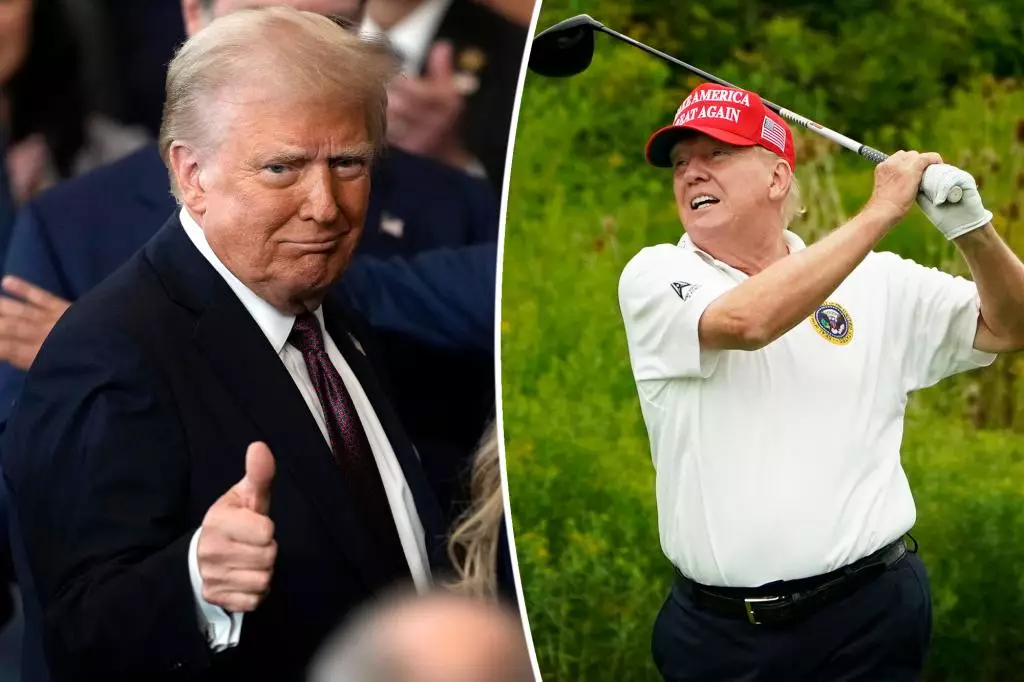Donald Trump’s tendency to favor his Mar-a-Lago estate—the so-called “Winter White House”—stirs a debate about the intersection of leisure and leadership. Sources suggest that Trump will follow a similar pattern to his first term, opting to spend weekends in Palm Beach to engage in both relaxation and political maneuvering through the game of golf. This inclination may raise eyebrows, but it has become a hallmark of his presidency and personal brand. Trump’s preference to host world leaders and conduct business in a familiar and comfortable atmosphere is indicative of his desire to blend leisure with the demands of the office.
Historical Context: A Presidency on the Green
During his first administration, reports indicated that Trump dedicated substantial portions of his time to golf. An astounding 418 visits to Trump-branded properties, including 307 days at various golf clubs, showcased not just a penchant for the sport but also a method of interaction that has defined his leadership style. This approach, reminiscent of his predecessors who engaged in informal settings for diplomacy, seems to reflect his belief that productive discussions can occur outside the confines of formal meeting rooms.
Trump’s famous golfing partnership with figures like Japanese Prime Minister Shinzo Abe underscores this idea, portraying a casual side of diplomacy that appeals to his supporters. Nonetheless, there was speculation that he might curb his golfing activities in his second term, focusing instead on pressing national issues, a decision that has prompted discussions about his commitment and priorities.
Despite intentions to minimize golfing with casual acquaintances and prioritize the nation’s challenges, it appears Trump has deviated from that course. Reports indicate that while he might reduce his social golf outings, opportunities for rounds with notable friends, such as Elon Musk or Senator Lindsey Graham, could still remain on the horizon. This potential to swing back into a routine of golfing presents a striking contrast to previous pledges, highlighting the complexities and contradictions often inherent in political promises. For Trump, the allure of the golf course is powerful and may prove difficult to entirely resist.
Further complicating matters, recent events surrounding security threats—such as an attempted assassination linked to one of Trump’s courses—cast a shadow on his leisurely pursuits. The overwhelming fame attached to his golf properties, where he enjoys considerable attention, now comes with heightened risks. As he navigates fluctuating priorities between governance and leisure, the reality of maintaining personal safety while enjoying his pastimes remains paramount.
Involve golf; involve governance—Trump exemplifies a modern blend requiring leaders to navigate both personal preferences and national responsibilities. His penchant for golfing at Mar-a-Lago serves to both humanize and politicize his presence in office. As he prepares for what many anticipate as another term, the balance between relaxation and duty will continue to shape how he engages with the world, reflecting not only his style of leadership but also the evolving expectations of presidential conduct in a high-stakes political environment.

